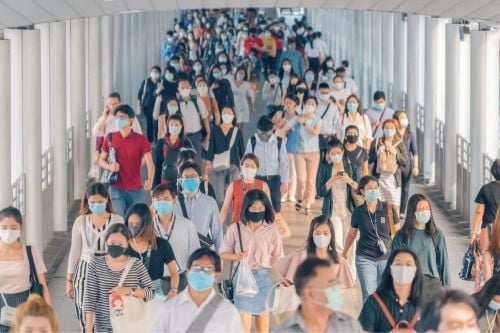

Ever since the macro-economic impacts of the COVID-19 pandemic became clearer, high-profile members of the global property and casualty (P&C) (re)insurance industry have been calling for more government help in absorbing extreme losses from pandemic events, especially when it comes to business interruption (BI).
Chubb chairman and CEO Evan Greenberg was one of the first to speak up – and as leader of the world’s largest publicly traded P&C insurer, with operations in 54 countries and more than 30,000 employees, his remarks held weight. He described the insurance industry’s ability to take pandemic risk as “very limited” given the infinite nature of losses from such a systemic event, and he called for greater cooperation between public and private entities to handle future events. Greenberg is one of many insurance professionals to hold this view.
Much contention over the past year has revolved around BI coverage after mandatory closure of non-essential businesses. Commercial insurance policies and traditional BI policies typically do not offer coverage for BI or supply chain disruption due to a pandemic such as COVID-19. Generally, BI insurance will only trigger if there is a direct physical loss to property – unless there is unique language written into the insurance contract that deems otherwise.
Worldwide, the industry has taken a fairly united stance that insurers cannot pay claims on insurance policies for which they collected no premiums due to the virus and bacteria exclusions. However, complainants and recovery lawyers have argued that the policy language for pandemic coverage is often too ambiguous for insurers to warrant blanket claim denials. This has brought the importance of clear policy language to the fore.
One property carrier that has prioritized “clear, straightforward, and simple wording” across its suite of coverages, and therefore managed to avoid some of the pandemic-related BI issues is Beazley. Lou Ann Layton, head of broker relations & marketing for Beazley, commented: “Our policies were very clear. Those that had coverage, we paid quickly, and those that didn’t [weren’t subject to being] contested in a court of law.
“As the industry contemplates BI, we must go further to think about pandemic cover in general. Pandemic coverage in some way, shape or form has been talked about and has evolved into an offering of sorts, but I do think if we’re going to tackle a global issue like a pandemic, there has to be a solution for it that is maybe insurance and government combined.”
That sentiment is echoed by many. Marsh’s Tarique Nageer, terrorism placement advisory leader, said: “When the suggestion is made that pandemics are uninsurable, what’s really being inferred is that pandemics are not fully insurable without support from the federal government […] The complex nature of pandemic risks means that we need strong national pandemic management. This requires insurers working with and backed by the federal government being able to write pandemic insurance policies.”
Likewise, Zurich CEO Mario Greco recently stated: “An event like a pandemic should be absorbed by society – public and private [sectors]. It cannot be passed to the private sector alone [because] this is a global and undiversified event, which is typically something that insurance companies cannot face by themselves.”
There is plenty of evidence worldwide of successful public-private partnerships to handle other potentially systemic exposures, like terrorism or flood. For example, the United States passed the Terrorism Risk Insurance Act (TRIA) in 2002, through which insurers and the federal government will share the risk of loss from terrorist attacks. Likewise, there are multiple examples of government-supported flood insurance programs.
“Everybody needs to work hand-in-hand – brokers, insurers, and the government - to look at solutions for our clients from a pandemic perspective that could address some of the gaps that exist in insurance policies, including business interruption,” Layton added.
